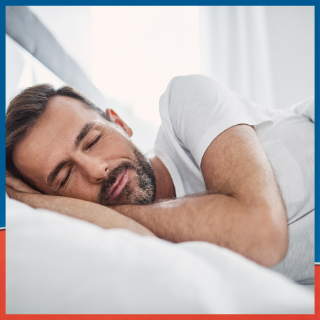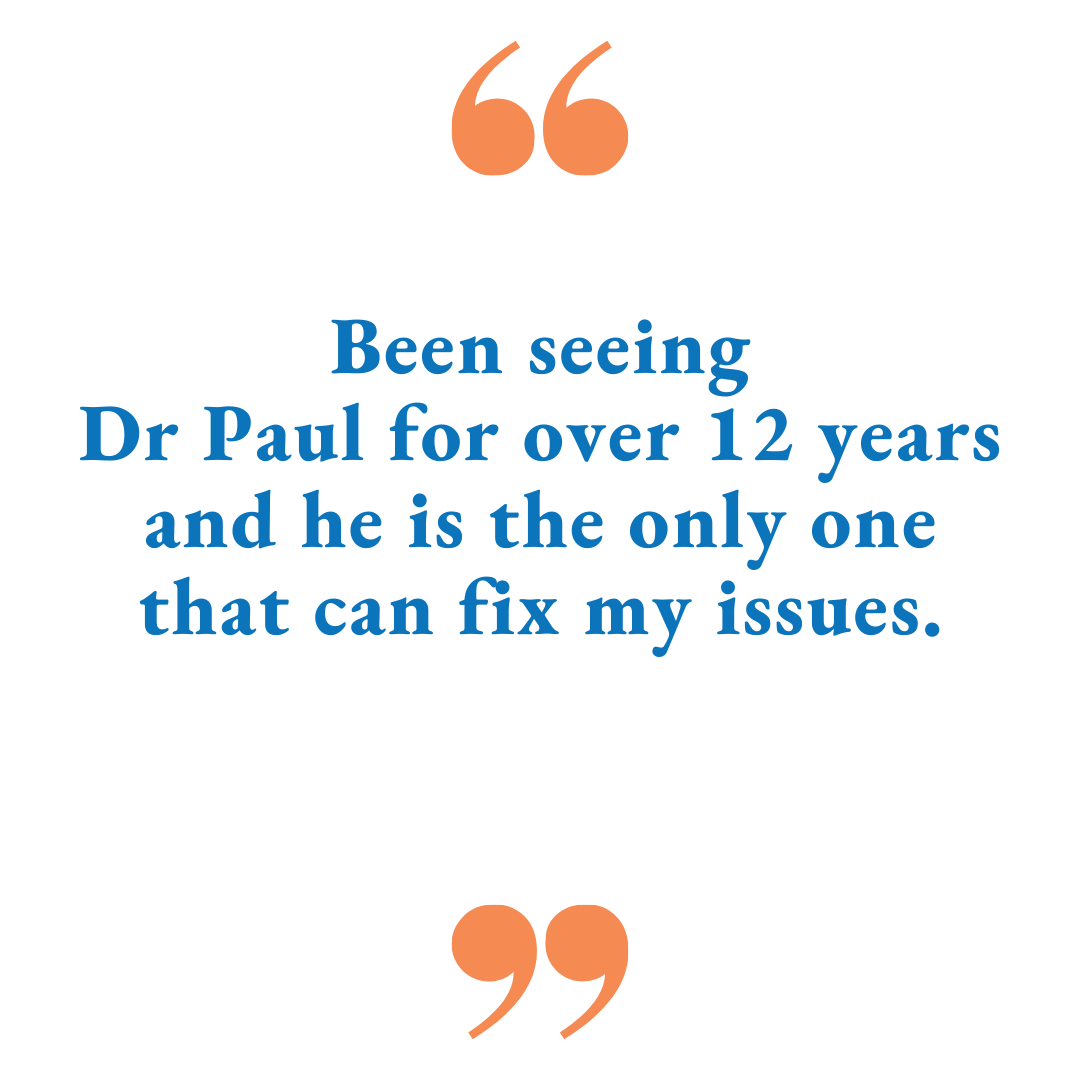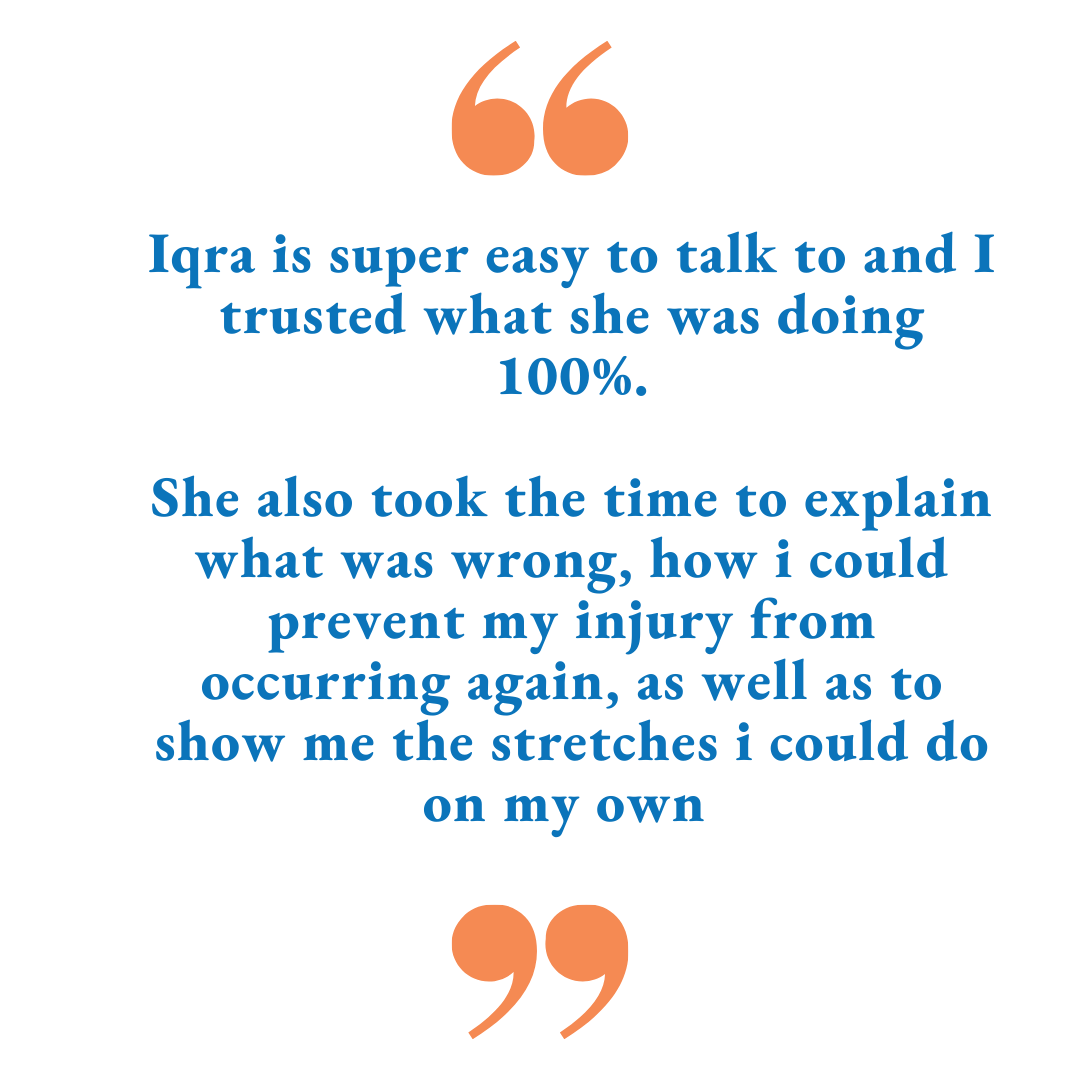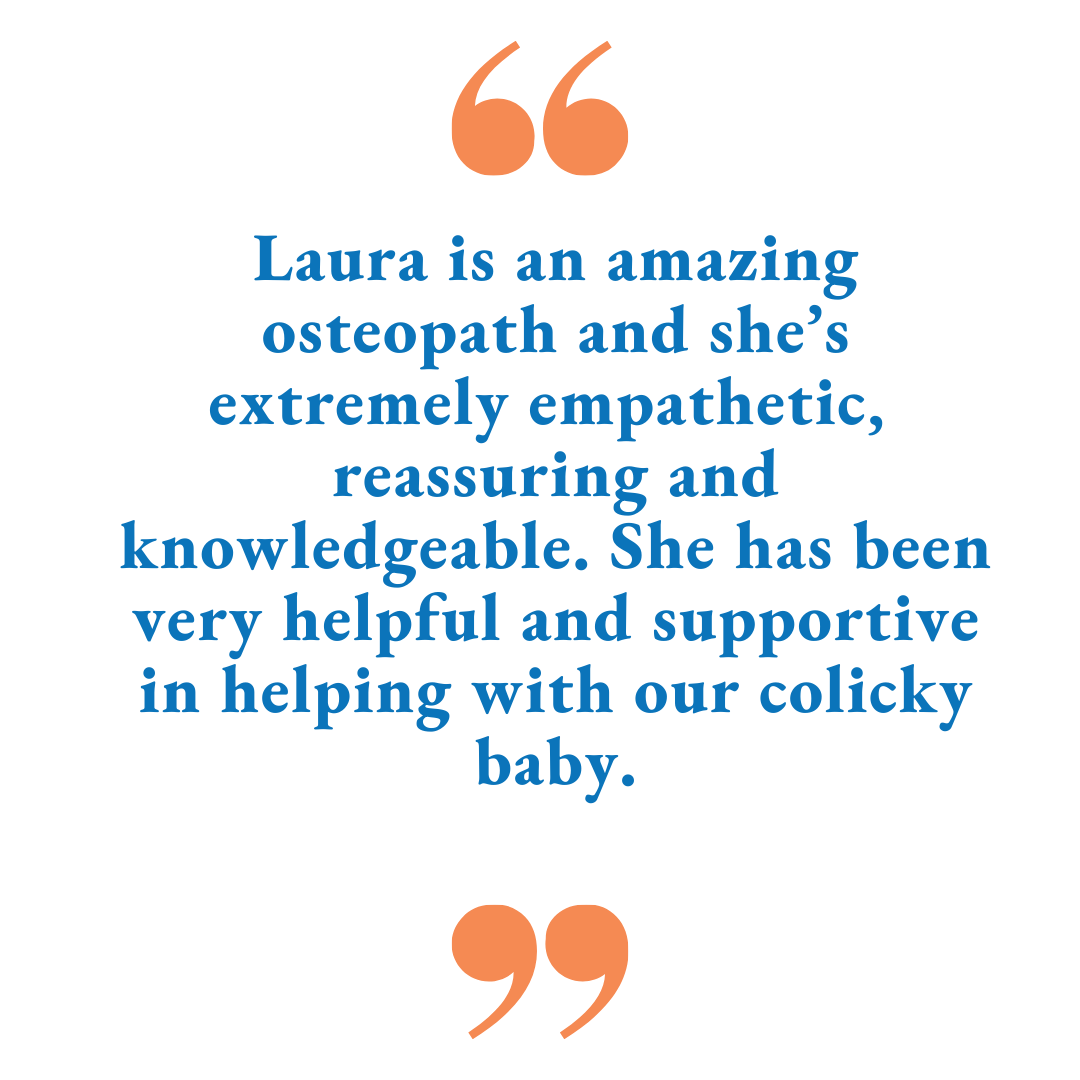Sleep Disorders - Why Is Sleep Important For Mental And Physical Health

In this article we discuss:
-
Types of sleep disorders
-
Symptoms of sleep disorders
-
Causes of common sleep disorders
-
How sleep affects mental health
-
How to treat the 5 most common sleep and Circadian Rhythm Disorders
-
The Osteopathic Treatment approach to sleep
Frequently Asked Questions:
-
-What Are the Signs & Symptoms of Obstructive Sleep Apnea?
-
-Can you have insomnia and sleep apnea?
-
-Can sleep apnea cause mental problems?
-
-What Is the Relationship Between Anxiety/Panic Disorder and Sleep?
How many types of sleep disorders are there?
There are at least 70 types of sleep disorders.
The 5 most common sleep disorders are:
- Insomnia: A condition where one struggles to fall asleep, stay asleep or go back to sleep
- Excessive Sleepiness: Daytime sleepiness- feeling drowsy, brain fog, or falling asleep when one should be awake during activities
- Sleep Apnea: Recurrent episodes of complete or partial obstruction of the upper airway leading to reduced or absent breathing during sleep e.g. Obstructive Sleep Apnea is the most common.
- Narcolepsy: Chronic disorder of daytime, involuntary sleep attacks regardless of circumstances.
- Various Movement Syndromes: A long-term disorder that causes an unpleasant aching, tingling, or crawling feeling in the legs and the sudden urge to move them which occurs in the late afternoon, before bed, or during sleep e.g. Restless Leg Syndrome.
What are the symptoms of sleep disorders?
Specific sleep disorders have specific symptoms. Some common symptoms could include:
- Regularly taking 30 minutes or longer to fall asleep
- Regularly waking up often throughout the night
- Naturally waking up very early
- Having to go to the toilet to urinate often during the night (nocturnal polyuria) is sometimes a sign of sleep apnoea
- Feeling sleepy during the day or often taking naps throughout the day
- You are told you snore, snort, struggle to breathe, or stop breathing for moments while you sleep
- Tingling or crawling sensations up the legs or arms that are specifically worse in the evening or when you are trying to fall asleep
- You are told that you jerk or drastically moves your arms and legs while sleeping
- Vivid dreams while you doze off or nap
- Moments of muscle weakness when intense emotions are felt (anger, fear, or laughter)
- Difficulty to move or a feeling of paralysis when you wake up
Asking yourself these questions:
- Do I fall asleep while driving?
- Do I fall asleep or struggle to stay awake when inactive or in a relaxed state (reading or watching tv)?
- Do I struggle to concentrate?
- Do I struggle to perform or complete tasks at work or school?
- Do people often tell me I look sleepy?
- Do I struggle with my memory?
- Do I take long to respond or slow to process?
- Do I struggle to regulate my emotions and reactions? Do I react impulsively?
- Do I feel the need to take naps every day?
- Do I wake up fatigued/tired even after a long nights 'sleep'?
What causes common sleep disorders?
Sleep problems can be caused by various factors. Although causes might differ, the end result of all sleep disorders is that the body's natural cycle of slumber and daytime wakefulness is disrupted or exaggerated. Most sleep disorders, therefore, have common factors that contribute to lack or disrupted sleep.
These 7 factors include:
1. Physical illness or disorders
Most physical illnesses or disorders, either chronic or acute can prevent or disrupt our sleep. Ulcers, digestive disorders, infections (bacterial/viral) of any kind, pain, and inflammation of any kind to name a few can all contribute in preventing or disrupting sleep, as the discomfort and pain keeps us awake
2. Environmental/Consumption of food or Substances
This could include living in an environment where there is an unequal amount of daylight and night time e.g. country's far north have very few daylight hours in winter and very little night time hours during summer, this may effect our natural “biological clocks" (circadian rhythm).
Alcohol, energy drinks and caffeine (coffee, tea, and cacao/chocolate) are all stimulants and these substances may keep us awake by stimulating our hormonal system.
3. Night shift workers
Working and being awake at night confuses our circadian rhythm.
4. Hereditary
Narcolepsy is often passed on through genes.
5. Medications
Some medications can act as stimulants that keep us awake.
6. Getting older
It is common for adults aged 65 and over to suffer from sleep disorders. Evidence is unclear if this is part of ageing or if it is linked to the common medications that older people use that can cause sleeping issues.
7. Stress
The most common cause of insomnia is stress. Stress affects your ability to fall asleep at night because you are too worried about something going on in your life. You may also feel anxious when trying to get back to sleep after waking during the middle of the night. This anxiety makes falling back into deep sleep difficult. If this happens often enough, you will eventually stop sleeping well.
How sleep affects mental health:
Why is proper sleep important for our mental health and what happens when we don't get it?
Normal sleep patterns revolve around 2 varying sleep cycles that usually alternate every 90 minutes or so.
During the first cycle "quiet" sleep, a person enters four stages of ascending deep/restful sleep. Body temperature drops, muscles relax, and heart rate and breathing slow. The last and deepest stage of 'quiet sleep' produces physiological changes where the most healing and recovery takes place. Immune system functioning gets boosted and cellular as well as musco-skeletal repair takes place.
The second cycle is REM (rapid eye movement) sleep. This is also known as the dream state. Body temperature, blood pressure, heart rate, and breathing increase to levels measured when people are awake. The brain is completely active while the body is not. Evidence shows that REM sleep improves and increases learning, memory, and plays a complex role towards emotional health.
Scientists and researchers have discovered that sleep deprivation or restless sleep has a huge affect on levels of neurotransmitters and stress hormones, which creates a huge chemical imbalance in the brain and results in impaired thinking and emotional dys-regulation. Therefore not getting enough or sufficient sleep may greatly increase the effects of psychological disorders, and vice versa.
Sleep problems may, in turn, contribute to psychological problems. For example, chronic insomnia may increase an individual's risk of developing a mood disorder, such as depression or anxiety. In one major study of 10,000 adults, people with insomnia were five times more likely to develop depression.
Type of sleep disorder, prevalence, and impact vary by psychiatric diagnosis. But the overlap between sleep disorders and various psychiatric problems is so great that researchers have long suspected both types of problems may have common biological roots.
What happens when a person doesn't get enough sleep?
Not getting the right amount of sleep can lead to more than just being tired. Learning disabilities, memory impairment, personality changes, and depression can all be caused by sleep deprivation. People who don't get enough sleep experience difficulties in making decisions, have slower reaction times and are at risk for accidents. Sleep loss contributes to the development of diabetes and heart disease.
Risk of poor sleep quality
Every now and then we all experience a bad night’s sleep, yet if this disruption becomes a more frequent occurrence then it may affect our physical and mental wellbeing. Consistent poor sleep can increase our risk of heart disease, diabetes and obesity. Adults who have fewer than 6 hours of sleep have a 13% increase in mortality rate; adults who sleep for less than 7 hours a night have a 30% likelihood of obesity. (Kristen L. Knutsona and Eve Van Cauterb)
How to Treat the 5 Most Common Sleep and Circadian Rhythm Disorders
It's crucial that patients seek medical advice from a healthcare professional or sleep physician in order to get an accurate diagnosis. The following could be used under the advice of a professional as effective treatments.
- Insomnia: Sleeping pills, melatonin supplements, lavender, chamomile tea
- Excessive Sleepiness: Bright light therapy
- Obstructive Sleep Apnea: CPAP (continuous positive airway pressure) machine.
- Narcolepsy: There is no cure however certain medications and lifestyle changes can help to manage the symptoms
- Various Movement Syndromes (e.g. Restless Legs Syndrome): Medication
Tips and other treatments for sleep disorders?
Treatments are dependent on which sleep disorder you have. This could include:
- Creating good sleeping habits through lifestyle changes: Proper diet and being strict with a regular 'waking time' and 'going to bed time' to create a regulated circadian rhythm cycle.
- Being strict with technology once the sun has gone down - laptops, cellphones, tablets, television or any other screen produces a 'blue light' which confuses our production of melatonin, the hormone needed for sleep. Our brain, therefore, thinks that it is daytime and we should be awake. Try to restrict your screen time 1 - 2 hours before going to bed.
- Cognitive behavioural therapy, meditation, breathing techniques, yoga, or relaxation techniques can all help to reduce anxiety by activating the parasympathetic nervous system and bringing the body to a restful state. These techniques also enhance the production of melatonin.
- CPAP (continuous positive airway pressure) is a machine used for Obstructive Sleep Apnea that pumps pressure to the lungs to open the airways, which allows the body to get the correct amount of oxygen levels into the body. In some cases, dental devices may be used to change the positioning of the jaw and aid respiration whilst sleeping.
- Bright light therapy: Exposure to bright light sets your internal clock or circadian rhythm. Light therapy works by exposing your eyes to a certain amount of light for a specific period of time. It is not always possible to use sunlight as a treatment depending on where you are in the world. Artificial light may be used to affect the body clock in the same way that sunlight does. Bright light therapy is commonly used in the morning, as you wake, for maximum light exposure.
- Medicines such as sleeping pills can be taken for a short period of time.
- Natural products and herbal remedies: Melatonin can be used as a supplement for a short period of time. Essential oils such as lavender or chamomile tea calm the system down and can also aid in relaxing the body and preparing it for sleep.
The Osteopathic Treatment approach to sleep.
Sleep disturbances like insomnia are related to the central nervous system (CNS); physical pain, trauma, stress, anxiety and circulatory issues may be the source of your insomnia. Increased pain levels can create irritability and heightened pain signals to the CNS, therefore the higher the pain the more difficult it is to correctly read signals to sleep.
This is why your osteopath may perform craniosacral examination and treatment that may indirectly help with relaxing your CNS.
Another Osteopathic approach to sleep disturbances is helping the functionality of the 10th cranial nerve called the vagus nerve. Your osteopath may therefore choose to treat viscerally or cranially.
Your osteopath may also apply techniques aimed at effecting the autonomic nervous system (ANS). Elements of the ANS, specifically the parasympathetic nervous system have an effect on some of the systems in the body that control rest and digestion.
All in all, there are many ways to address this issue but if you have been experiencing chronic sleeplessness then please seek professional advice from an experienced practitioner who will assess your situation thoroughly and provide you with effective solutions.
Click here to find out more about the Osteopathic approach regarding sleep therapy
Frequently Asked Questions:
Sleep apnea is one type of sleep disorder where people experience pauses in their breathing during sleep. These pauses can last from just a few seconds to many hours. People with this condition usually don't remember these brief interruptions because they happen so frequently. Obstructive sleep apnea, which is the most common form, causes the airways to constrict which leads to difficulty in breathing. Symptoms of sleep apnea include excessive daytime drowsiness and fatigue as well as, snoring, struggling to breathe, or the sound of choking when sleeping. It also increases the risk of high blood pressure, heart disease/ heart attack, diabetes, stroke, depression, anxiety, memory problems, accidents, injuries, and even death.
Is sleep apnea secondary to anxiety?
There are many different types of sleep apnea. Obstructive Sleep Apnea (OSA) mostly causes sleep to be fragmented as a person stops breathing while sleeping. The brain wakes the body up repeatedly which causes sleep to be fragmented or episodic. A closed airway which results in gasping of air also wakes a person up.
For most people suffering from OSA going back to sleep is not a problem however for some it could lead to insomnia as the awakened brain starts racing with thoughts, anxieties, and fears, which prevents them from falling asleep again.
Yes. Sleep Apnea can cause unstable moods and feelings of irritation and trigger anxiety and/or depression. Furthermore, it can increase the risk of other health conditions such as high blood pressure, heart disease, diabetes, atrial fibrillation, and stroke.
Serious sleep disturbances, including insomnia, have commonly been recognised as a symptom of anxiety disorders and mental instability. Worrying or a hyper aroused mind has been identified as a key factor behind insomnia. People with anxiety disorders are inclined to have increased sleeping problems when facing stress.
Sleeping difficulties have been found in people suffering with various types of anxiety including; generalised anxiety disorder, OCD, and PTSD. Negative thoughts surrounding going to sleep anticipate the onset of anxiety in some individuals, which prevents sleep schedules and routines from being consistent.
Anxiety disorders and changes in a person's sleep cycles are evidently linked. Research indicates that anxiety and pre-sleep rumination may affect rapid eye movement (REM) during sleep, which is our dreaming state. Researchers have found that people who are prone to anxiety are prone to insufficient sleep which could further worsen the anxiety. Anxiety can also lead to nightmares or unwanted dreams which once again makes the individual fearful of falling asleep.
Lack of sleep is known to affect mood, emotional and mental health, which may exacerbate the challenges posed by anxiety disorders. Many individuals cannot sleep due to their pre-existing anxiety and when this becomes a habit they feel anxious about not being able to sleep. The one feeds and worsens the other one. The connection between anxiety and sleep goes beyond simple cause and effect. There appears to be an underlying biological mechanism that explains why some individuals experience difficulty getting enough rest while others do not. There is a connection between lack of sleep and depression too.
Conditions such as OSA can bring about symptoms of depression, anxiety, and panic disorders.
There is also clear evidence, that links eating disorders with lack of sleep - specifically in individuals that restrict food intake. Apart from the constant hyper arousal of the mind with worry, anxiety, and potential intrusive thoughts that are associated with an eating disorder, individuals that are not taking in sufficient energy through food are kept awake as the body is mentally and physically hungry. The brain keeps the body awake as it is malnourished and needs nutrients to function optimally.
If you've skipped to the bottom here are some questions that are answered above:
- How many types of sleep disorders are there?
- What causes sleep disorders?
- What are the symptoms of sleep disorders?
- What are the treatments for sleep disorders?
- How to Diagnose & Treat the 5 Most Common Sleep Disorders
- Can you have insomnia and sleep apnea?
- What Are the Signs & Symptoms of Obstructive Sleep Apnea?
- Can sleep apnea cause mental problems?
- How sleep affects mental health
- Is sleep apnea secondary to anxiety?
- What Is the Relationship Between Anxiety and Sleep?
- Why Panic Disorder and Anxiety Cause Sleep Issues
- Sleep anxiety treatment
Finding trouble getting good sleep? Request to speak to our osteopath via the Ask The Osteo button below to learn how Osteopathy may help with your sleep
Recommended Reads
See more articles on our Instagram page here
https://www.instagram.com/the.osteo.sg
What Patients Say About Us!




